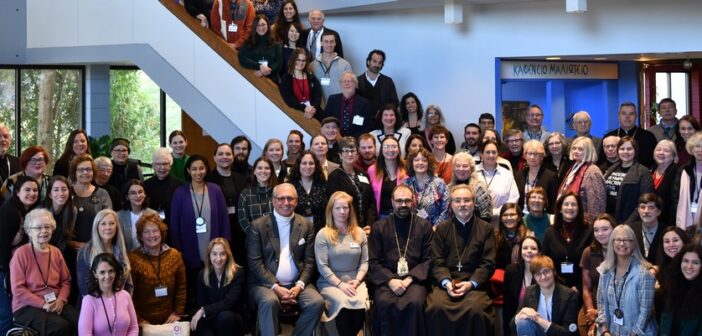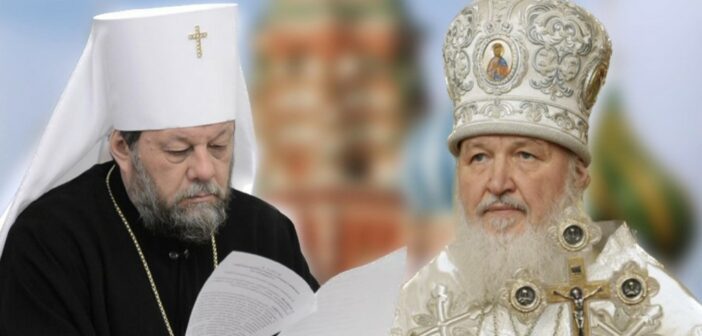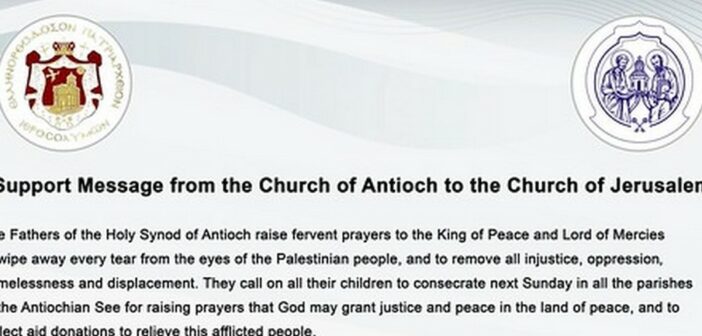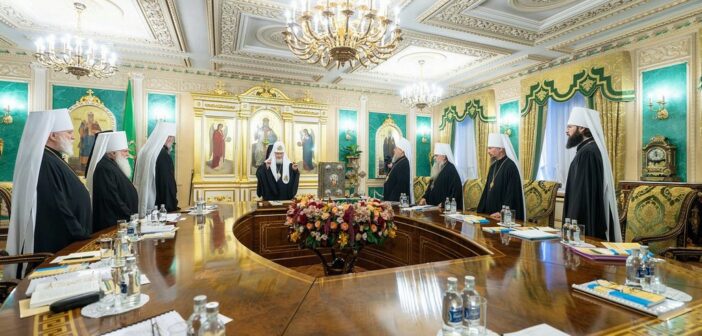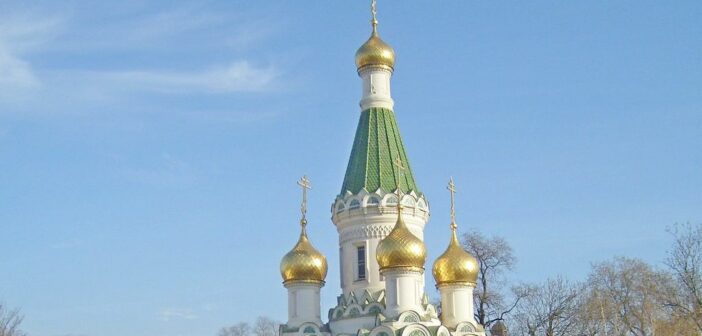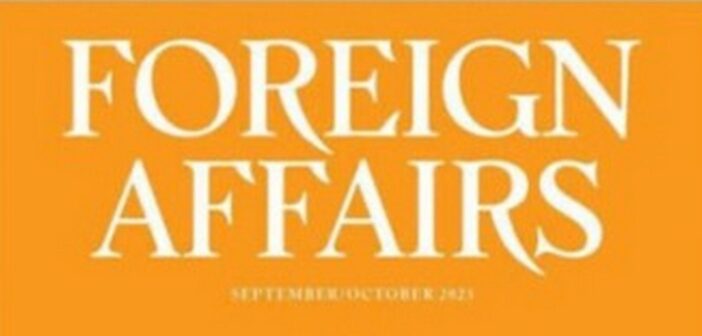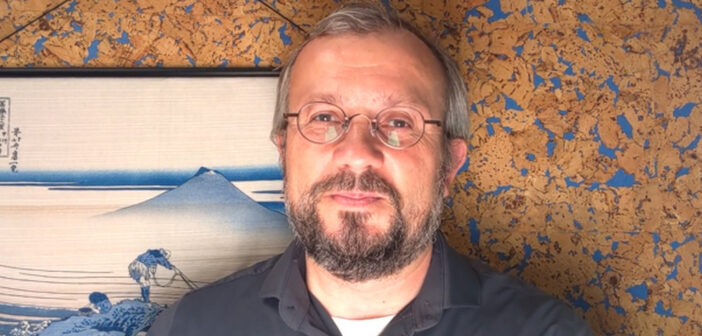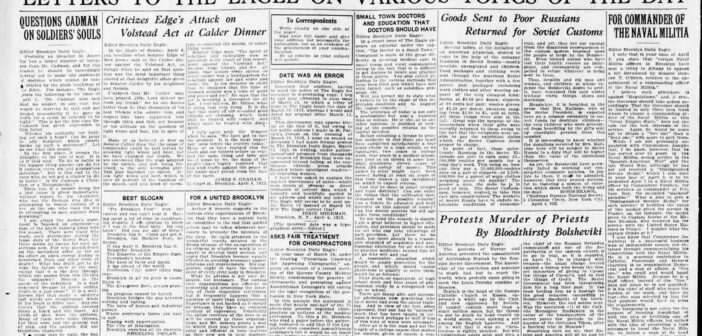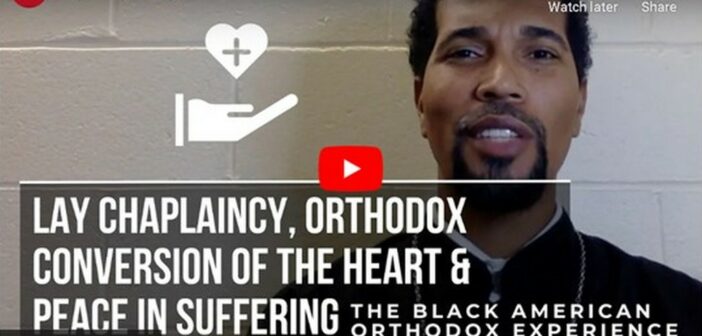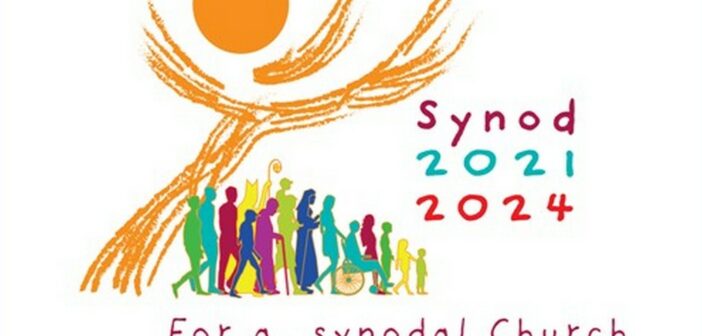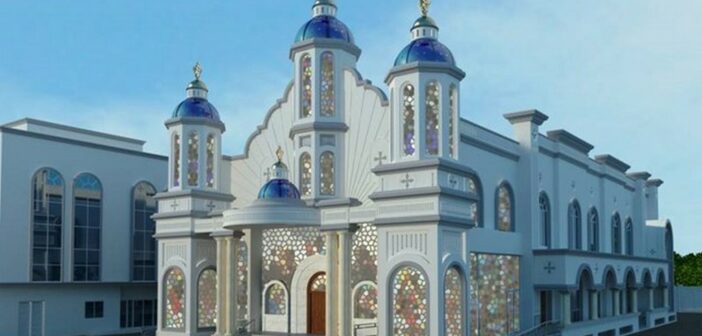Source: St. Phoebe Center for the Deaconess Brookline, Massachusetts—In honor of its tenth anniversary, the St. Phoebe Center for the Deaconess held a symposium at the Maliotis Cultural Center of Hellenic College Holy Cross on November 10-12, 2023. The event drew a large and diverse crowd with clergy and laity coming from not only the New England area, but from across the country, with representation from Florida, Kentucky, California, Texas, Virginia, and elsewhere. The symposium reviewed the history of and need for the revival of the female diaconate, but primarily considered the pragmatics of how the Orthodox Church might welcome women—who comprise…
Browsing: Orthodox Church
Source: Peter Anderson, Seattle USA The Holy Synod of the Orthodox Church of Moldova (OCM) met on October 25. The minutes of this meeting can be read at (link) However, before considering these minutes, it is helpful to review various events occurring prior to the meeting. On September 5, Metropolitan Vladimir of Chișinău and All Moldova sent a very strong letter to Patriarch Kirill with a long list of grievances. An English translation of the letter was provided in my last newsletter. See (link) (20 October 2023). The authenticity of this leaked letter has not been denied by either the Moscow Patriarchate or by the…
Source: Antiochian Orthodox Christian Archdiocese of North America From the Patriarchate of Antioch The Fathers of the Holy Synod of Antioch raise fervent prayers to the King of Peace and Lord of Mercies to wipe away every tear from the eyes of the Palestinian people, and to remove all injustice, oppression, homelessness and displacement. They call on all their children to consecrate next Sunday in all the parishes of the Antiochian See for raising prayers that God may grant justice and peace in the land of peace, and to collect aid donations to relieve this afflicted people. Understanding that the…
Source: Peter Anderson, Seattle USA On Wednesday, October 11, the Holy Synod of the Moscow Patriarchate met at the Danilov Monastery in Moscow. The meeting had not been previously announced. The minutes of the meeting can be read at (link). Changes were made in three important positions of the Moscow Patriarchate. The first change is that Metropolitan Lazar of Simferopol and Crimea is retired by the Holy Synod. See Journal entry 92. The retirement of Metropolitan Lazar is not a surprise. He was born in 1939 (thus 84 years old) and has served as the head of the Simferopol and Crimea diocese…
Source: Peter Anderson, Seattle USA Among the Local Orthodox Churches, it is common for one Local Orthodox Church to have a representation church (more properly called a podvorie or metochion) at the seat of another Local Orthodox Church. This is true of the Moscow Patriarchate and the Bulgarian Patriarchate. The Bulgarian Patriarchate has a representation church in Moscow. Conversely, the Moscow Patriarchate has a representation church in Sofia. The church in Sofia is the Church of St. Nicholas the Miracle-Worker, located in central Sofia. It is also known as the “Russian Church.” (link) Many come to pray here because the church is the location of…
Source: Assembly of Canonical Orthodox Bishops of the USA On September 14th, Foreign Affairs, the influential magazine of the Council on Foreign Relations, published an article entitled, “Putin’s Useful Priests.” The Assembly of Canonical Orthodox Bishops of the United States of America hereby expresses its objection and concern with the inaccurate manner with which Orthodox Christians in the United States are stereotyped by the authors. First, the article contains significant factual errors that are surprising for the renowned Foreign Affairs and disrespectful to a vital Christian community whose roots in America date over three centuries. Orthodox Christians in America – representing a plethora…
Source: Peter Anderson, Seattle USA On Sunday, September 25, Patriarch Kirill of Moscow and All Rus’ issued a decree initiating canonical proceedings in the diocesan court of the Moscow Diocese against Archimandrite Cyril Hovorun. Pending a canonical trial, the decree imposed severe limitations on the priestly service of Archimandrite Cyril. The full text of the decree is posted at (link). A Google translation of the full decree is as follows: Decree No. U-02/152 of 25 September 2023 // to Archimandrite Kirill (Hovorun) The written commitment of fidelity to the Russian Orthodox Church given by you was repeatedly violated, which was expressed,…
Source: Orthodox History by MATTHEW NAMEE The following remarkable letter appeared in the Brooklyn Daily Eagle on March 18, 1915. It offers a well-informed but obviously partisan perspective on the Orthodox reality in America and globally in 1915 — in the midst of World War I. There’s so much happening in this letter, so many layers. It has to be one of the most fascinating historical records I’ve ever stumbled upon. I only wish I knew the identity of the author — all we can tell here is that he’s a Greek-American who knows a great deal about the entire Orthodox world. Read…
Source: The Orthodox Observer In this eleventh installment, Fr. Samuel Davis speaks with Holy Cross seminarian Cornelius (Kevin) Grandberry about his conversion, his charismatic background, the importance of lay chaplaincy, and effective Orthodox outreach. Baptized and Chrismated into the Church in July 2020, Cornelius comes from a Nondenominational/Pentecostal background, and has a Master of Divinity degree from Liberty University with a concentration in Evangelism and Church Planting. He is currently a seminarian at Holy Cross Greek Orthodox School of Theology, recently completing his first year of study. The Black American Orthodox Experience is a program focused on Orthodox missions in…
Source: Peter Anderson, Seattle USA The first session of the XVI Assembly of the Synod of Catholic Bishops will be held at the Vatican during the period October 4-28, 2023. The Synod will be devoted to the subject: For a Synodal Church: Communion, Participation, Mission. On September 19, the Vatican provided the final list of the Synod participants. https://www.synod.va/en/news/the-participants-of-the-16th-general-assembly-of-the-synod-of-bishops.html Of the twelve “fraternal delegates” listed, three are from the Orthodox Churches of the Byzantine tradition, and three are from the Oriental Orthodox Churches. With respect to the Dicastery for Promoting Christian Unity, Cardinal Kurt Koch is listed as a participant, and Father Hyacinthe…
Source: Public Orthodoxy by Very Rev. Dr. John Jillions Visiting Professor at the Institute for Orthodox Christian Studies (Cambridge, UK) When the New York Times recently asked readers to tell them why they had left their religion behind some 7,000 readers responded (“Why Do People Lose Their Religion?” June 7, 2023). Clearly there is a lot of painful pent-up feeling about this. But an equally intriguing question is, “Why do people keep their religion?” This is a question that percolated throughout a course on religion in American history I was teaching this past Spring at Fordham University (“American Religious Texts and Traditions”). The class…
Source: The National by Anjana Sankar New facility to cater for increase in worshippers The St George Orthodox Cathedral building in Mushrif was demolished in September last year. A foundation stone was laid for the new one and construction started in December. Church authorities said nearly 40 per cent of the building work is complete. Meanwhile, regular services are being held in a purpose-built hall next to the construction site. Rev Father Eldho Paul, the vicar at St George’s, told The National that worshippers will be able to pray in the new cathedral by May next year. With an estimated cost of…

